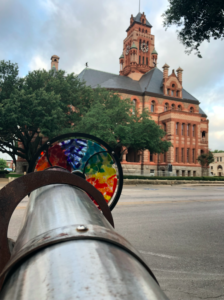
Waxahachie courthouse Square kaleidoscope takes looking at the world through rose colored glasses one step further. The Internet active artwork created by Eddie and Mary Elizabeth Phillips sits on the corner of Main and College Street, just across the street from the fabulous Ellis County Courthouse. You overlook it if you’re as entranced with courthouse architecture as I am, but it’s worth looking for! It takes the cardboard kaleidoscopes of our youth to a while new level.
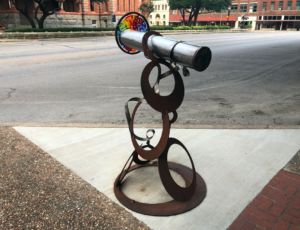 Built of scrap metal and stained glass, visitors can spin the glass wheel at one end and then look through the triangular opening at the other for a burst of ever changing colors. And the installation is near the corner streetlight it can even be enjoyed at night. (Good thinking!)
Built of scrap metal and stained glass, visitors can spin the glass wheel at one end and then look through the triangular opening at the other for a burst of ever changing colors. And the installation is near the corner streetlight it can even be enjoyed at night. (Good thinking!)
Click these links to see videos of this kinetic beauty in action, and then make a note to give it a spin yourself when you’re in the area!
Waxahachie-Kaleidescope-1
Waxahachie-Kaleidescope-2
Were you as fascinated with kaleidoscopes as a kid as I was?
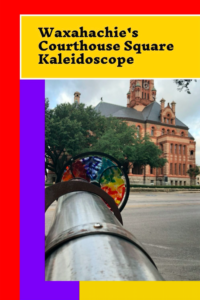
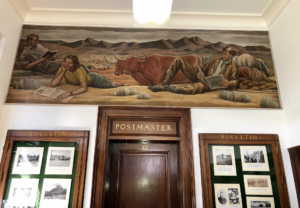
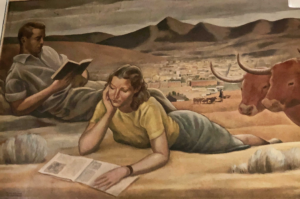
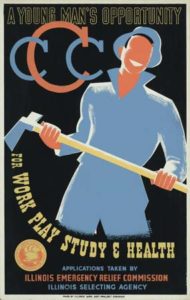
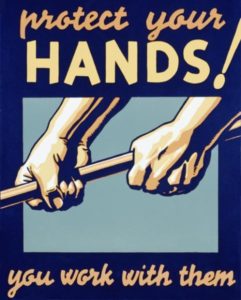 One project of “The Section” placed artists in Civilian Conservation Corps (CCC) camps to create paintings of CCC work and life, and to make safety posters and decorate camp buildings for that project. The Section even provided sculptures to be exhibited at the New York World’s Fair in 1939.
One project of “The Section” placed artists in Civilian Conservation Corps (CCC) camps to create paintings of CCC work and life, and to make safety posters and decorate camp buildings for that project. The Section even provided sculptures to be exhibited at the New York World’s Fair in 1939.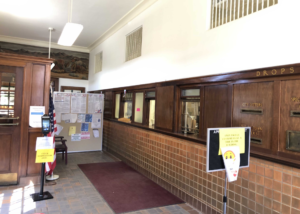
 In 1939, a Spanish-American artist Jose Moya del Pino (1891-1969) living in San Francisco entered a TDSFA competition to paint a post office mural in San Antonio. His design depicting Sam Houston and the Alamo didn’t win, but he received a consolation assignment at the new Alpine building. The sketches he submitted with a “View of Alpine” did the trick that time.
In 1939, a Spanish-American artist Jose Moya del Pino (1891-1969) living in San Francisco entered a TDSFA competition to paint a post office mural in San Antonio. His design depicting Sam Houston and the Alamo didn’t win, but he received a consolation assignment at the new Alpine building. The sketches he submitted with a “View of Alpine” did the trick that time.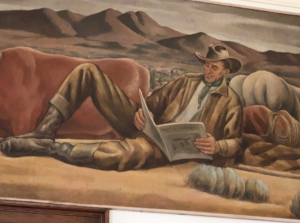

 Built of scrap metal and stained glass, visitors can spin the glass wheel at one end and then look through the triangular opening at the other for a burst of ever changing colors. And the installation is near the corner streetlight it can even be enjoyed at night. (Good thinking!)
Built of scrap metal and stained glass, visitors can spin the glass wheel at one end and then look through the triangular opening at the other for a burst of ever changing colors. And the installation is near the corner streetlight it can even be enjoyed at night. (Good thinking!)